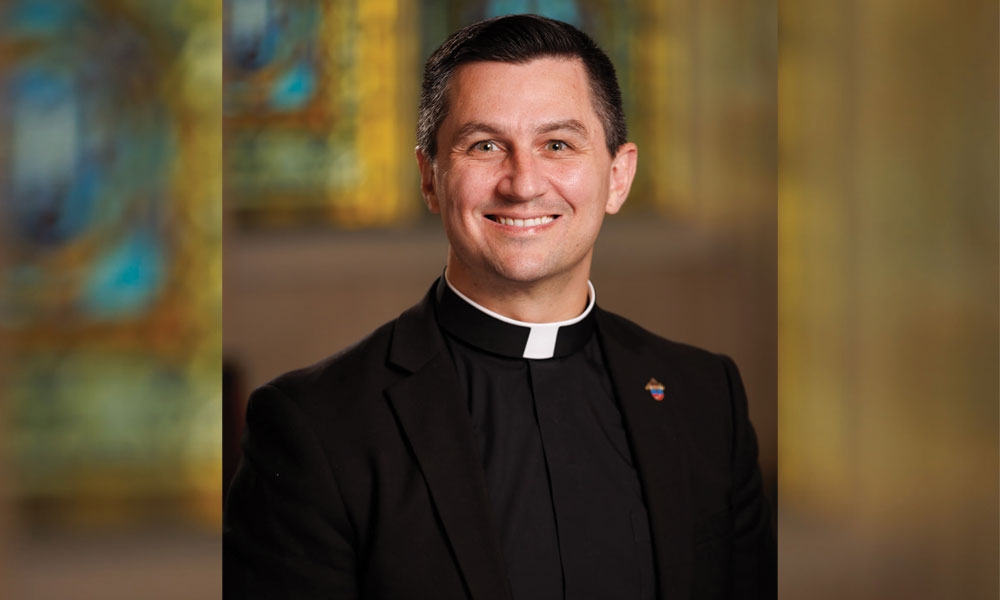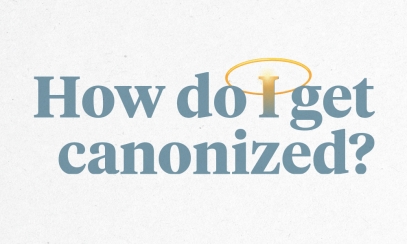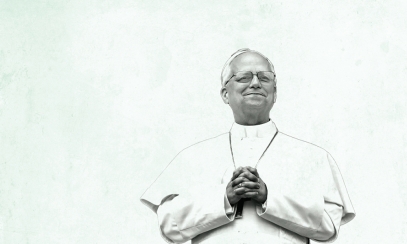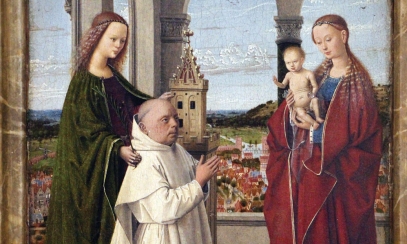
Free to be Catholic
Getting your Trinity Audio player ready...At the recent United States Conference of Catholic Bishops (USCCB) Plenary Assembly in November 2024, I felt proud when a staff member of the Committee on Catholic Education expressed admiration for the Diocese of Lansing’s well-known commitment to Catholic education. This year marks the 42nd anniversary of the Code of Canon Law, which addresses Catholic schools and reflects the teachings of the Second Vatican Council’s declaration Gravissimum educationis (Oct. 25, 1965) on Catholic education.
At the recent United States Conference of Catholic Bishops (USCCB) Plenary Assembly in November 2024, I felt proud when a staff member of the Committee on Catholic Education expressed admiration for the Diocese of Lansing’s well-known commitment to Catholic education. This year marks the 42nd anniversary of the Code of Canon Law, which addresses Catholic schools and reflects the teachings of the Second Vatican Council’s declaration Gravissimum educationis (Oct. 25, 1965) on Catholic education.
Cardinal Zenon Grocholewski, former prefect of the then Congregation for Catholic Education, gave a lecture at Fordham University in 2008 in which he reminds us that Pope St. John Paul II called the code the “final document of the Council” which “crowns the work of the Second Vatican Council,” urging us to place it “next to the book containing the Acts of the Council” and to “study the code.” Therefore, to fulfill God’s desires for Catholic education in our communities, we should be a people of the council and a people of the code, which will enable us to know and understand the fundamental purpose and task of every Catholic educational institution.
The 1983 Code of Canon Law includes 29 canons on Catholic education in Book III, emphasizing its foundation in the Ministry of the Divine Word. Education is the duty and right of the Church and parents (793-794), serving as a means to proclaim Jesus Christ and his doctrine, primarily through preaching and catechetical instruction. (761) This is the fundamental task of education. Catholic schools exist not merely to pursue societal goals, or “something merely human” (Pope Francis, December 2022) that focuses on programs and resources, but to fulfill the Church’s mission to evangelize and form the whole person.
Evangelization proposes Christ freely, distinguishing it from coercive proselytizing. Therefore, Catholic schools must evangelize, not proselytize; without this fundamental task, their mission is diminished. Operating “in the name of the Church” (c. 116 §1), every administrator and teacher must ground their educational plans and personal lives in Catholic doctrine. (c. 803 §2) Even when accepting non-Catholic students, Catholic schools must maintain their identity, educational plan, and fundamental task of guiding each student toward salvation in Jesus Christ. The Church often must defend this fundamental task and its right to maintain the identity of its Catholic school, which is why the code states the Church defends its “right to establish and direct schools.” (800 §1)
Despite this important mission, Catholic education faces significant challenges globally. In countries like North Korea, Saudi Arabia, Afghanistan, Somalia, Libya, Yemen, Iran, Maldives, and China, Catholic education is outlawed or severely restricted. France’s principle of secularism enforces strict neutrality, limiting religious instruction, diminishing the Catholic school’s fundamental task. In China, Catholic educators must swear loyalty to the Chinese Communist Party (CCP), and their curriculum is monitored to align with socialist doctrine. The anti-Catholic worldview throughout history knows: to control Catholic education is to control the Church. Though recently there is hope for the Church in China. The places where Catholic education is restricted impacts individuals’ moral and spiritual well-being.
Where the Church cannot carry out the “Ministry of the Divine Word” through Catholic education, people are deprived of formation and evangelization, as only the Catholic Church fully conveys the dignity and identity of the human person as gifts from God. Without Catholic education, other voices — often contrary to human dignity — promote worldviews that can erode moral identity, making individuals more vulnerable to depression and self-destructive ideations.
Therefore, Catholic education offers the best of what God provides to humanity, answering the universal longing for identity with the Gospel. Today, let us be grateful we live in a country that allows Catholic education, grateful for our diocese known for providing excellent Catholic education, and never forget why Catholic schools exist, as Pope Benedict XVI aptly stated: “First and foremost every Catholic educational institution is a place to encounter the living God who in Jesus Christ reveals his transforming love and truth.” (April 17th, 2008)
I felt proud in November, as I do today, of our Catholic education institutions in the diocese, and so let us advance further by making our Catholic schools more and more places of personal encounter with Jesus Christ and support those means to achieve this goal.
Many of us have questions about the application of our Catholic faith, including how it responds to the needs of the world we live in, and why we believe what we believe. If you have questions about any aspect of the faith please send them to the Very Rev. Mark Rutherford, JCD (Cand.) (pictured above). Father Rutherford is a priest of the Diocese of Lansing currently serving as the judicial vicar of the Archdiocese of the Military Services, USA and is a canon lawyer. He has served in a number of parishes in our diocese and is looking forward to addressing comments, issues, and questions related to canon law, our Catholic faith, and how we can live it out in our everyday lives. Please send your questions to faithquestions@dioceseoflansing.org.



